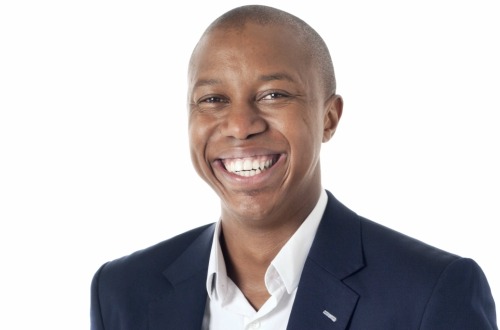
It may just be local startups to help reinvigorate investor confidence in Africa’s most advanced economy. This is according to news website, Quartz Africa.
This has been particularly so for African tech-focused startups who last year raised some $54.6 million in funding.
We have seen a number of startups close massive funding rounds this year as well while others scaled their businesses globally.
These tech startups have had a significant effect on many sectors and industries disrupting traditional incumbents and introducing new ways of doing things.
Fintech startups, as an example, have given access to masses of the marginalized and unbanked, forever changed how ordinary people bank, pay for goods and services and engage with their finances so much so that much larger traditional institutions have sought to work with these fintech startups in order to avoid being disrupted by them.
Dominique Collett, senior investment executive at Rand Merchant Investment Holdings and head of the firm’s next-generation financial services business, AlphaCode, wrote in a thought leader article for SME South Africa that Africa is fertile ground for new fintech services which, she says, are leveraging the power of communities and social media to make financial services more relevant, while using data to deliver more meaningful financial services on an ongoing basis.
“This has seen fintech itself become a facilitator of economic growth in Africa,” she says.
Within the greater tech environment, terms such as blockchain, APIs and MVPs are increasingly becoming part of everyday conversation and developments in IoT, mobile and cloud technologies has seen startups such as Yoco, Domestly, i-Pay and StokFella gain considerable traction.
Big lessons
We have also picked up many lessons from some of the country’s stand-out techpreneurs. These are just a few of the many entrepreneurs who brought new ideas, found innovative ways of doing things and in many ways are changing people’s lives for the better.
Here are our favourite gems of insights, advice and tips from 5 trendsetting entrepreneurs that every future-focused business can benefit from.
Lesson 1: Ensure your finances are in order
Darlene Menzies, SMEasy CEO.
Good recordkeeping and accounting is crucial, not only for decision making in your business, but also in preparation for the due diligence prospective investors will undertake. You have to be able to produce financial statements that have been audited or signed off by an accountant and also have up to date management accounts. – Darlene Menzies founder and CEO of SMEasy – The startup that provides the award-winning, easy-to-use business management and accounting software specifically designed for entrepreneurs with little accounting know-how, has attracted both national and international attention, securing endorsements and funding from several established and prestigious backers. The most recent being an investment from Grotech, a section 12 J Venture Capital Company.
Lesson 2: Test your product well
Katlego Maphai, Yoco CEO.
If you’re in fintech, you need to be careful and understand that you are in some way handling money that doesn’t belong to you, there’s an element of agency here. The cost of error differs by industry, if the cost of error is low for customers in your venture, you can have a quick beta and iterate fast. I guess you can say that the [Beta Length] is directly proportional to [cost of error]. – Yoco co-founder and CEO Katlego Maphai – Yoco is a solution that allows card readers to connect to any phone or tablet transforming it into a card acceptance terminal that can be used just about anywhere. The solution, which launched in November 2015 is the brainchild of Katlego Maphai (CEO), Bradley Wattrus (CFO), Lungisa Matshoba (CTO) and Carl Wazen (CBO).
Lesson 3: Take advantage of support from fellow entrepreneurs and institutions
Financial institutions are relatively conservative and consumers are wary of new technologies, especially when it comes to their money. We have been fortunate to receive support from fellow entrepreneurs and more forward thinking financial institutions. Being members of AlphaCode’s fintech hub, we have been able to connect with experts in various business fields, who have provided us with invaluable advice. Never take no for an answer. If others can’t yet appreciate your vision, convince them by making it a reality. – MyTreasury co-founder Daniel Rubenstein – Rubenstein co-founded the Johannesburg-based startup together with Michael Kransdorff and Simon Shear to help South Africans find the savings accounts with the highest interest rates for their savings preferences. Read more
Lesson 4: Get to market as soon as possible
“Many people think the product development is the most difficult part for tech startups, in reality, it is far easier to develop the product than to get it to market. Tech startups have a misconception that customers want the product to be ‘perfect’ and to offer all the possible features before they will buy it. They therefore tend to err on spending too much time over perfecting their product rather than getting to market as soon as possible. Launching is vital for gaining early customer traction which is needed to secure venture capital.” – Annette Muller, founder of FLEXY – Flexy is an online skills-on-demand platform where verified experts sell skills to forward thinking companies looking for skills. Flexy takes the headache out of finding and screening freelancers and independent professionals providing a fast and cost effective way to get access to skills on demand. Muller is also founder and CEO of DotNxt, a innovation management specialist firm.
Lesson 5: Create MVPs and iterate fast
We develop quickly and iteratively – developing in fixed schedule weekly sprints allows us to deliver new features to market quickly and frequently. We work with our clients to develop features – through intense customer discovery sessions, we unpack what our customers really need DocFox to do. This allows us to build a valuable and useful product. – DocFox CEO and co-founder, Ryan Canin – The startup launched a web application that helps customers submit their FICA documents electronically in a just a few taps. Founded last year, the founders have managed to secure a partnership with global law firm Norton Rose Fulbright.
Lesson 6: Pivot if you have to
Tania Mukwamu, Pluritone co-founder.
“The economic downturn in 2013 was particularly tough on us as many clients pulled out of projects or faced tight cashflow positions. Again our resilience and adaptability made us relook our company positioning and offering in order to improve, innovate or come up with new revenue streams for our company.” – Tania Mukwamu co-founder of Pluritone – This is a software development and IT services consulting firm. In June this year, Mukwamu together with partner, Ruddy Mukwamu launched their virtual wallet application MaxiCash, which allows users to transfer and transact with African mobile money service providers, into Africa entering countries including Kenya, Nigeria, Cameroon, Zambia, Senegal, and Burundi.
Lesson 7: Find and nurture the right people
For a startup that is in the process of scaling – as Zoona was and is – people decisions are among the most expensive and most valuable. A significant portion of any investment raised (as much as 60% in some cases) will normally be re-invested in hiring people to help fuel the expansion and growth of the business.
Finding the right people, therefore, is key. This means ensuring a ‘values fit’ in addition to a ‘skills fit’. It also means spending the time to onboard them properly, as well as preparing the organisation for the change that an influx of new people often entails. – Mike Quinn, CEO of Zoona – The Cape Town-based money transfer company which has a footprint across Africa but operates primarily in Zambia announced a series B funding round of US$15 million in August this year.
Lesson 8: Keep a keen eye on trends
It is quite important as you need to understand what is coming around the corner whether it is a new smartphone, new data transmission capabilities or anything that may affect your environment. For example, 3D printing is geared to impact the manufacturing, food, retails and health industry in a big way; what are you doing as a tech-savvy entrepreneur to prepare for this?” – Tshepo Moloi, CEO and founder of StokFella App – The app is a financial management application for stokvels, that allows users to keep records of all financial transactions, it also has a scheduling tool to help with the planning of meetings and the governance in the form of a stokvel’s constitution. StokFella was one of five black-owned South African fintech startups to walk away with R1-million each in funding from Merrill Lynch South Africa and AlphaCode in October. Read more


